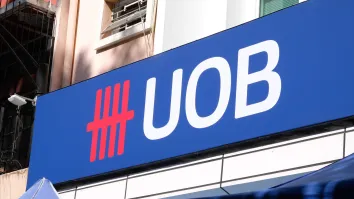The implications of the LIBOR scandal across Asia
By Nithya SridharanThe recent developments in the LIBOR scandal feels like we're back in the ages of the Merchant of Venice. We're caught in the feeling of having borrowed money from Shylock himself, except perhaps in our case, a more fearful, self preserving Shylock who succumbs to peer pressure easily.
Of course, the implication is not towards Shylock being one specific person in this warrior clan, but is directed towards Shylock being the larger system of banking itself.
The recent spate of problems has surely and certainly alerted banks in Singapore and Hong Kong to take note of their own processes.
The HKAB (Hong Kong Association of Banks) has recently announced that it is looking into its own HIBOR process and taking stringent measures to see that it is a safe one. It is taking on measures like introducing a formal code of conduct and reducing the number of rates it publishes.
In Singapore, the SIBOR rate is being examined thoroughly. The central bank of Singapore has ordered banks in Singapore to review the way the SIBOR rates are submitted.
Japan is also re-examining the TIBOR process. Not to be left out, Korea is also examining and identifying risks in its KORIBOR process.
A fundamental question to ask in the wake of such large scale re-examination of the interbank lending rates in various countries in Asia is if we truly understand the risks involved in the current LIBOR rate process.
Examining the LIBOR scandal and exploring its roots could well lead us to a solution. Specific chosen banks submit their individual bba libor rates to Thomson Reuters everyday.
Every contributing bank submits a rate in response to the question “At what rate could you borrow funds, were you to do so by asking for and then accepting inter-bank offers in a reasonable market size just prior to 11 am?”
The contributing bank has a specific set of written guidelines to follow when submitting the rate to Thomson Reuters, who after conducting relevant tests, calculate the LIBOR (again, subject to known/accepted methodology) and publish it.
A large number of financial instruments use this calculated rate for their computation.
The LIBOR can reflect a lot of information about the contributor and the industry by and large. If the value submitted by the contributor is consistently away from the mean, it attracts attention and raises issues of liquidity, illiquidity and other parameters that could affect the ascent/descent of the rate.
A bank can only want to be “consistent” if its values are away from that of others and this may want the bank to desperately cut a small corner, a tiny little decimal here and there.
Of course, one bank's tiny decimal error cannot affect the rate very dramatically. Many banks have to feel that way and tamper with their results a little to influence the rate.
Of course, we could all be a little holier-than-thou and fail to acknowledge the human condition of this situation.
It is analogous to a student fudging a decimal in a chemistry titration back in his or her undergraduate days cause she or he knew what the value of the titre should exactly be and the student's values really didnt match very closely.
That student wanted to cut that corner, not because he or she was a cheat, but because he/she wanted a better grade more. The student wanted to compete and not lose out to one's peer.
If the system was such that the mistake in the titration was understood better and could be remedied without leaving deep scars or causing the student deprivation, perhaps the student would have acted more ethically.
As inexcusable unethical behavior is, it is equally important to look into its root cause and examine what led to it. Perhaps a more human approach to the whole situation could help the system identify its pressure points that make people succumb to unethical behavior easily.
The question we should ask ourselves is, can we measure data reliability and ethical behavior / process adherence by and large? Can stock prices be allowed to imbibe this information?
Performance metrics and daily routine checking processes, can be encoded into a number.
For example, it can be the number of times a reported value is being checked, or the number of supervisors/authorities that have checked a figure that goes out in public view or has to be reported.
Of course a panel can decide on what the performance must measure and practioners could decide on what that should be. But it should be electronically recordable / checked.
The whole performance check of the company can be encoded into one number which can be made publicly available.
This number, once available will represent the reliability of that company's data. This on being publicly available everyday, by the way of working of the markets, shall get encoded into the prices and other market parameters by principle.
Can companies be rated according to data reliability and ethical metrics alongside credit worthiness? It is only when ethical behavior has a demand, can the LIBOR turn into the RELIABOR (a reliable LIBOR).
Ethical behavior must become “beneficial” and should be encoded. Sticking to the rules must become a rational and natural choice.
In the wake of all the re-examination of the interbank offer rates, whilst we understand that the procedures to tabulate the HIBOR and SIBOR are stable and reliable, it is also important to have a futuristic vision towards these rates.
Perhaps research will prove to be invaluable in this area. For now though, we must put our trust on ethics and a very good process management system. It will certainly be Asia's key to building a robust and secure economy.



















 Advertise
Advertise











